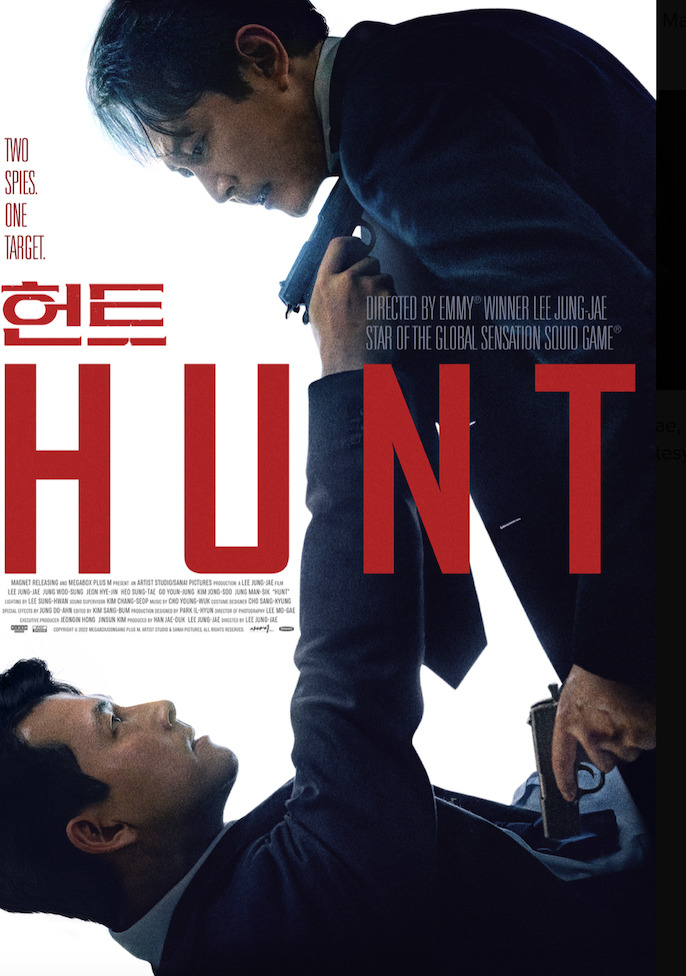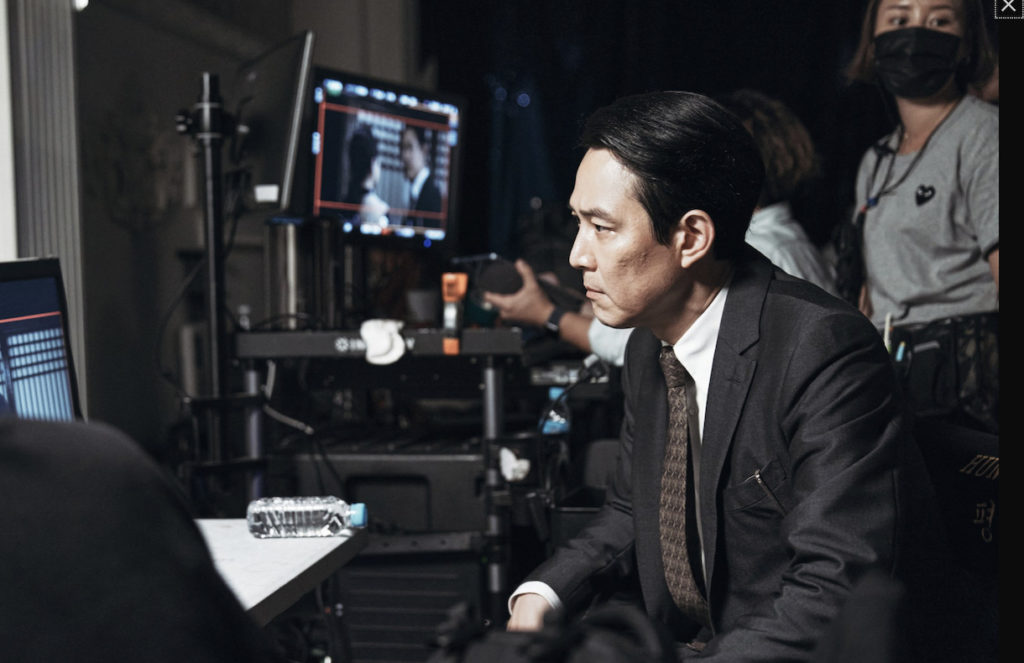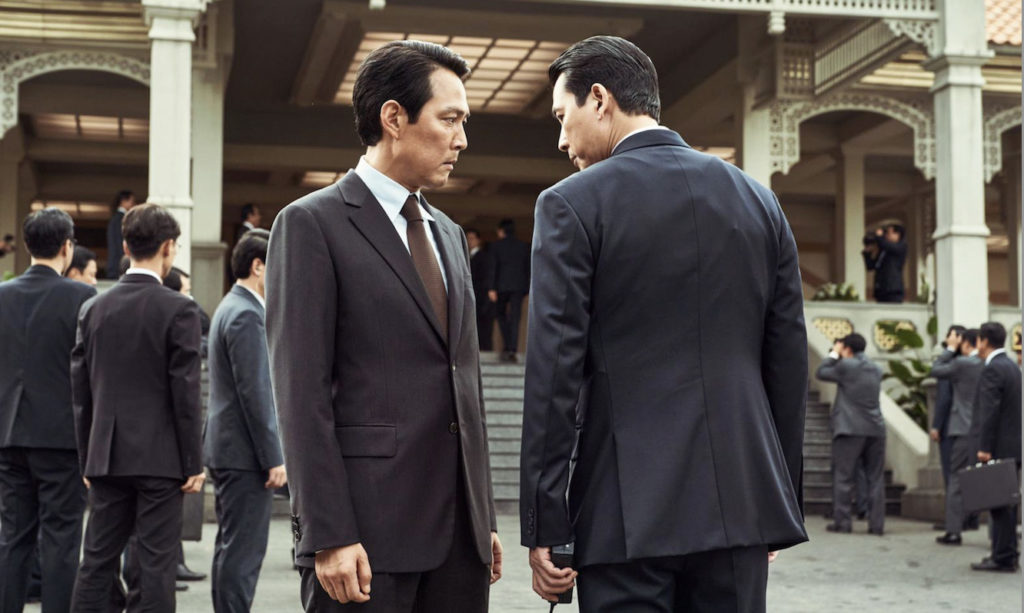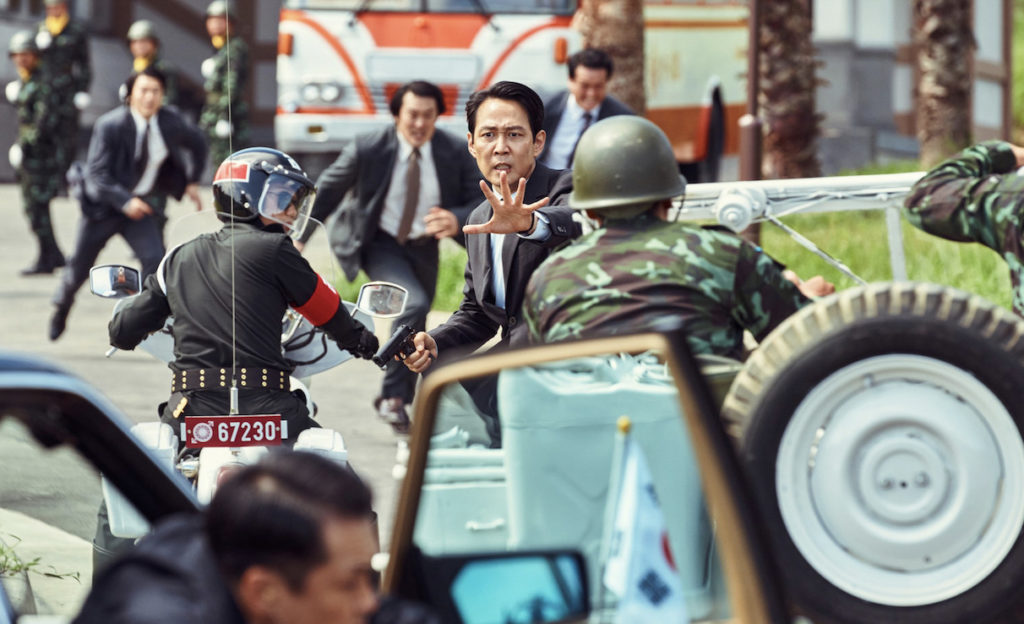
Synopsis : After a high-ranking North Korean official requests asylum, KCIA Foreign Unit chief Park Pyong-ho (LEE Jung Jae) and Domestic Unit chief Kim Jung-do (JUNG Woo Sung) are tasked with uncovering a North Korean spy, known as Donglim, who is deeply embedded within their agency. When the spy begins leaking top secret intel that could jeopardize national security, the two units are each assigned to investigate each other. In this tense situation where if they cannot find the mole, they may be accused themselves, Pyong-ho and Jung-do slowly start to uncover the truth. In the end, they must deal with an unthinkable plot to assassinate the South Korean president…

Exclusive Interview Actor/Writer/Producer/Director Lee Jung-jae
Q: After the assassination of the real Korean president Park Chung-hee in 1979, people were hoping for political transition to democracy, that movement it’s called Seoul Spring, but quickly government shut those people down. I believe you were in elementary school when those things happened, but how did that memory lead you to make this film?
LJJ: Because I grew up near a university, I would often witness these protests that were happening during the military dictatorship.
Q: You and your co-star Jung Woo-sung worked together for the first time but you and Jung developed the entertainment company, Artist Company, in 2016. How has your collaboration blossomed over the years after you two started the company?
LJJ: My friendship with Jung began with filming “City of the Rising Sun” [dir. Sung-su Kim, 1998] and we have had a strong relationship since then. In thinking about how we could expand our relationship with other filmmakers we [thought of] this small production company. Since then, we have been working on diverse projects with many actors and filmmakers since then.
Q: There is much tension in this film. I heard that you tried not to talk to each other much on the set. But since you were directing the film, how did you manage to collaborate with each other on set?
LJJ: The most important part for me was for the actors and the entire crew to understand the script very well. So I would explain the story a lot to them, and differentiate between what actually happened in Korean history versus the hopeful fictionalization of certain elements in a cinematic way. We had a lot of discussions about how to raise tension in the film, as you mentioned, and I think when we were shooting, we were actually having a lot of fun.
Q: When you shot the action scenes, you really shot the action in Tokyo, Japan. Getting permission to shoot in Tokyo is very difficult, particularly gun battles. How do you manage to achieve such intense scenes?
LJJ: It’s impossible to shoot an action scene in Tokyo. Even in writing the script, we knew that we were going to be shooting on location in Busan, so that’s why we set the setting as a hotel. They come in through the front door, maneuvering through that alleyway and leave through the back door of this hotel. In trying to make it look as realistic to Tokyo as possible, we got about twenty cars that had to be all on the other side, and all these street signs that we had to paste over the signs in Busan to make it as realistic to Tokyo as possible. But it was definitely a difficult feat for the crew.

Q: Are there any classic espionage films that inspired you? What kind of films influenced you, but also what elements are different in your film?
LJJ: Because “Hunt” is a film that deals with Korean history and the relationship between North and South Korea, rather than looking to other films for inspiration I really tried to make the story and the visual storytelling as unique as possible.
Q: In the film, when the Korean president Kim arrived in Thailand, Park said to Kim, “How long can you fight the violence with violence?” Park responded with “You think the world will change by removing one dictator?”
That appears to be the theme of the film. How important was it for you to add that dialogue at that point?
LJJ: This piece of dialogue may sound very direct, but I actually think it has some hopeful connotations, like two sides of a coin. Of course, you know, the situation can be extremely oppressive living under a dictatorship, but I did not want it to seem like they were letting go of hope. I was trying to convey the message that our next generation will be able to make things better, even if we don’t put all our focus into getting rid of the dictator. So I wanted to have this layered messaging to this scene.
Q: How has the Korean film industry changed over the course of time from when you started [in 1994] to now, when “Parasite” has won an Academy Award and a lot of Korean dramas are dominating Netflix?
LJJ: Yeah, the evolution of Korean cinema has lots of trends and tribulations, and in Korean cinema from the Sixties, there’s a lot of very artistic films starting from that time. Then in the Eighties and Nineties, there were a lot of films that had great commercial success and were box office hits. I would say the era of the Nineties to two thousands were these new generations of directors that had stories to tell that were rooted in realism. And starting in the 2010s, we saw a lot more genre films, with diverse stories and concepts.
So I think the evolution of Korean cinema is really rooted in telling these unique stories, and the production value has been going up so that foreign audiences have been paying more attention to it. I really feel we’re at a time when so many unique projects are in development and there’s a lot to look forward to.
Q: Thank you very much.

Check out more of Nobuhiro’s articles.
Here’s the trailer of the film.

